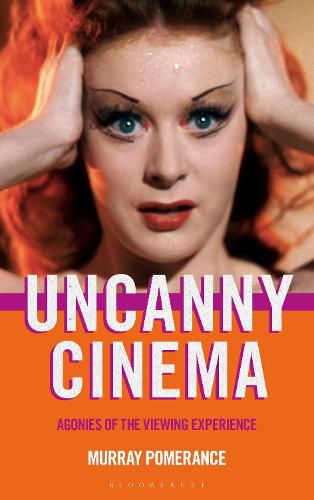Readings Newsletter
Become a Readings Member to make your shopping experience even easier.
Sign in or sign up for free!
You’re not far away from qualifying for FREE standard shipping within Australia
You’ve qualified for FREE standard shipping within Australia
The cart is loading…






Murray Pomerance's latest book explores an encyclopedic range of films and television shows to demonstrate the difficulty of conveying the experience of viewing cinema through words and the medium of text. From On the Waterfront to Marriage Story, Uncanny Cinema illuminates that words and writing are in perilous waters when applied to cinema, similar to ungestured talk. The book begins with this problem using Julian Jaynes's thoughts on vocality and imagination before delving into three exploratory 'movements' arranged to alternately challenge, inspire, and confound the reader to question if we know what we think we know or even see what we think we see. The viewer is faced with disturbances, ruptures, and surprises that occur during the viewing experience, which Pomerance analyzes to stretch the sense of what we do and do not (or, possibly, cannot) know, particularly as we think, talk, and write about cinema.
$9.00 standard shipping within Australia
FREE standard shipping within Australia for orders over $100.00
Express & International shipping calculated at checkout
Murray Pomerance's latest book explores an encyclopedic range of films and television shows to demonstrate the difficulty of conveying the experience of viewing cinema through words and the medium of text. From On the Waterfront to Marriage Story, Uncanny Cinema illuminates that words and writing are in perilous waters when applied to cinema, similar to ungestured talk. The book begins with this problem using Julian Jaynes's thoughts on vocality and imagination before delving into three exploratory 'movements' arranged to alternately challenge, inspire, and confound the reader to question if we know what we think we know or even see what we think we see. The viewer is faced with disturbances, ruptures, and surprises that occur during the viewing experience, which Pomerance analyzes to stretch the sense of what we do and do not (or, possibly, cannot) know, particularly as we think, talk, and write about cinema.